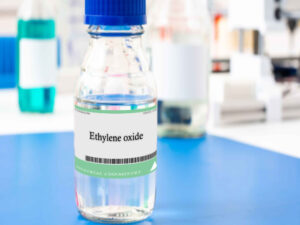Description
Diesel Fuel: Powering the World and Facing the Future
Diesel fuel, the workhorse of modern industry and transportation, is a ubiquitous yet often overlooked energy source. From powering massive cargo ships and long-haul trucks to fueling construction equipment and backup generators, diesel plays a critical role in keeping the global economy running. However, its contribution comes with environmental consequences that are driving innovation and a shifting energy landscape.
The Power Behind the Engine:
Diesel fuel is a petroleum-derived liquid mixture composed primarily of hydrocarbons. Unlike gasoline, which is ignited by spark plugs, diesel fuel ignites through compression. In a diesel engine, air is compressed to a high degree, raising its temperature significantly. When diesel fuel is injected into this hot, compressed air, it spontaneously ignites, driving the piston and generating power.
This compression-ignition process inherently makes diesel engines more fuel-efficient than gasoline engines. They extract more energy from each gallon of fuel, making them ideal for applications requiring high torque and long operating hours. This efficiency is why diesel is the preferred choice for heavy-duty vehicles, machinery, and power generation.
The Advantages of Diesel:
Beyond fuel efficiency, diesel engines offer several key advantages:
- Durability and Reliability: Diesel engines are renowned for their robust construction and long lifespan. They are built to withstand the rigors of demanding work environments and typically require less maintenance than gasoline engines.
- Torque and Power: Diesel engines deliver high torque at low speeds, making them well-suited for hauling heavy loads and navigating challenging terrain.
- Range: Due to their fuel efficiency, diesel-powered vehicles often have a longer range than their gasoline counterparts, a crucial factor for long-distance transportation.
- Versatility: Diesel fuel can be used in a wide range of applications, from powering agricultural equipment to providing backup power during emergencies.
The Environmental Concerns:
Despite its benefits, diesel fuel faces increasing scrutiny due to its environmental impacts. Burning diesel produces pollutants such as:
- Particulate Matter (PM): Fine particles that can be inhaled and contribute to respiratory problems and cardiovascular disease.
- Nitrogen Oxides (NOx): Gases that contribute to smog, acid rain, and respiratory issues.
- Sulfur Dioxide (SO2): A gas that contributes to acid rain and respiratory problems.
- Greenhouse Gases (GHGs): Including carbon dioxide (CO2), which contributes to climate change.
These emissions pose significant challenges to air quality and public health, driving the need for cleaner diesel technologies and alternative fuels.
The Future of Diesel: Innovation and Alternatives:
The diesel industry is actively working to mitigate its environmental impact through:
- Advanced Engine Technologies: Modern diesel engines incorporate technologies like common rail injection, turbocharging, and exhaust gas recirculation (EGR) to improve fuel efficiency and reduce emissions.
- Aftertreatment Systems: Diesel particulate filters (DPFs) trap particulate matter, while selective catalytic reduction (SCR) systems reduce NOx emissions, significantly cleaning up exhaust gases.
- Alternative Diesel Fuels: Biodiesel, made from vegetable oils, animal fats, or recycled cooking grease, offers a renewable alternative to petroleum-based diesel. Renewable diesel, produced through hydrotreating, shares similar properties to conventional diesel but is derived from renewable sources. E-diesel. made from renewable electrcity from various e-fuels.
- Electrification and Hybridization: Electric and hybrid technologies are increasingly being explored for applications traditionally powered by diesel engines, offering the potential for zero-emission or reduced-emission solutions.
Conclusion:
Diesel fuel remains a vital energy source for various industries and transportation sectors. However, its environmental impact is undeniable, prompting significant innovation and a push towards cleaner alternatives. As technology advances and renewable fuel sources become more widely available, the future of diesel will likely involve a combination of cleaner diesel engines, alternative fuels, and the increasing adoption of electric and hybrid technologies. The challenge lies in balancing the economic advantages of diesel with the urgent need to reduce its environmental footprint and create a more sustainable energy future. The diesel industry is committed to innovation.












Reviews
There are no reviews yet.